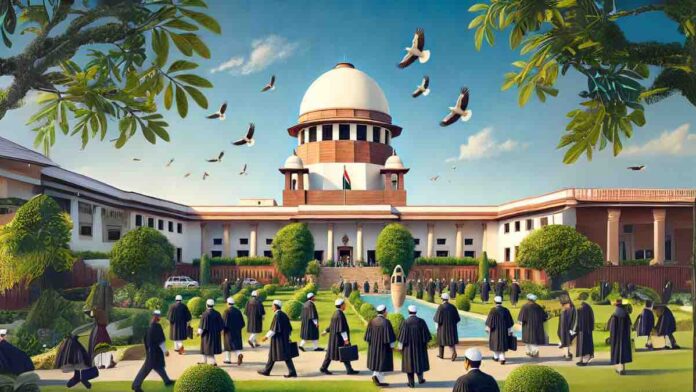In a judgment delivered on May 30, 2025, the Supreme Court of India elaborated on the essential characteristics that constitute a valid legal notice, while upholding the cancellation of land allotment by the Uttar Pradesh State Industrial Development Corporation (UPSIDC) to Kamla Nehru Memorial Trust (KNMT). The ruling came in the matter of Kamla Nehru
To Read More Please Subscribe to VIP Membership for Unlimited Access to All the Articles, Download Available Copies of Judgments/Order, Acess to Central/State Bare Acts, Advertisement Free Content, Access to More than 4000 Legal Drafts( Readymade Editable Formats of Suits, Petitions, Writs, Legal Notices, Divorce Petitions, 138 Notices, Bail Applications etc.) in Hindi and English.




